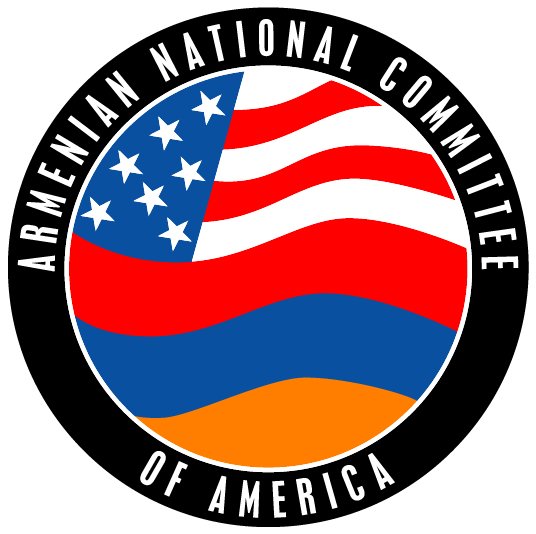
WASHINGTON, DC – Seventeen US Representatives have joined with Congressman Adam Schiff (D-CA) in calling on the Biden administration’s Commerce Secretary Gina Raimondo to block a proposed license allowing the sale of high-powered American-made rifles to Azerbaijan, an exercise of legislative oversight strongly backed by the Armenian National Committee of America (ANCA).
The Schiff letter follows a similar letter sent last month by US Senate Foreign Relations Committee chairman Robert Menendez (D-NJ), and an earlier ANCA letter sent in February of this year.
“We want to thank Representative Schiff and all who joined him in demanding long overdue answers from Secretary Raimondo to multiple Congressional inquiries and our own still-unanswered letter of February 13th of this year,” said ANCA executive director Aram Hamparian. “Secretary Raimondo needs to get out in front of this escalating controversy by publicly announcing that any proposal to arm Azerbaijan is dead-on-arrival. Period. Full stop.”
The Schiff letter poses seven key questions to Secretary Raimondo, who previously served as governor of Rhode Island:
1) Can you please confirm whether the Department of Commerce has received a request for an export license for lethal weapons to Azerbaijan?
2) If so, who is the intended recipient and what is the stated purpose of the weapons?
3) Has the Department of Commerce made a final decision on the license request? If no, when does it anticipate doing so?
4) Has the Department of State been consulted yet as part of this process, including the Bureau of Democracy, Human Rights, and Labor? Have reports from outside experts such as the International Crisis Group and Human Rights Watch been considered as part of the process?
5) Does the State Department concur with granting an export license?
6). How would it be possible to guarantee that U.S. weapons will not be used in the commission of war crimes, violations of human rights, or actions that will trigger full-scale war affecting the people of Artsakh and Armenia? And if it is not possible, how can the provision of such weapons be justified?
7. Have you provided a response to the Armenian National Committee of America’s February 13 letter? Will you commit to providing a response to this group?
Joining Rep. Schiff in co-signing this letter were Representatives Tony Cardenas (D-CA), David Cicilline (D-RI), Jim Costa (D-CA), Anna Eshoo (D-CA), Josh Gottheimer (D-NJ), Barbara Lee (D-CA), Seth Magaziner (D-RI), James McGovern (D-MA), Grace Meng (D-NY), Donald Norcross (D-NJ), Eleanor Holmes Norton (D-DC), Frank Pallone (D-NJ), Katie Porter (D-CA), Abigail Spanberger (D-VA), Haley Stevens (D-MI), Eric Swalwell (D-CA), and Rashida Tlaib (D-MI).
News of a possible sale of US rifles – including assault-style and semi-automatic sniper models – to Azerbaijan first broke on February 1st when Senator Menendez announced his “deep concern and strong opposition” to the proposed sale. “The export of weapons to an authoritarian country that wages war against a neighbor, blockades a vulnerable population, and commits rampant human rights violations at home is not consistent with the Administration’s commitment to democracy and human rights,” Sen. Menendez stated in a letter to Secretary Raimondo. “Further, the consideration of this export license further compounds my dismay that the Administration continues to allow the export of assault-style and sniper rifles abroad – even while supporting an assault-style rifle ban domestically – and deepens my reservations about the Department of Commerce having jurisdiction over such exports,” concluded Senator Menendez.
Hamparian and the local ANC chair from Secretary Raimondo’s home state of Rhode Island, Steve Elmasian, expressed similar concerns in a February 13th letter to Secretary Raimondo. “As you know, from your long friendship with Americans of Armenian heritage in Rhode Island and across the United States, our community is deeply troubled by the U.S. military aid program to Baku, and even more shocked by the possibility that American offensive weaponry may be deployed against Armenians in Artsakh (Nagorno Karabakh) and Armenia. The victims of Azerbaijan’s attacks are, very often, the relatives and friends of Armenian American citizens,” stated Hamparian and Elmasian.
#####
April 25, 2023
The Honorable Gina M. Raimondo
Secretary of Commerce
U.S. Department of Commerce
1401 Constitution Ave NW
Washington, DC 20230
Dear Secretary Raimondo:
We are at a pivotal point concerning the security of the South Caucasus and the safety of the people of Armenia and Nagorno-Karabakh (Artsakh). For more than 125 days — since December 12, 2022 — Azerbaijan has imposed a blockade of the Lachin Corridor, the only road connecting Artsakh to the outside world. The effect has been devastating to the population, rendering 120,000 individuals without access to food, medical supplies, consistent gas and electricity, and essential human rights such as freedom of movement. Despite an International Court of Justice ruling that ordered Azerbaijan to “take all measures at its disposal to ensure unimpeded movement of persons, vehicles and cargo along the Lachin Corridor in both directions,” Azerbaijani President Ilham Aliyev refuses to lift the blockade and told press those obstructing the road are “a source of pride.” Azerbaijan is once again weaponizing basic human necessities to further degrade already strained living conditions for the people of Artsakh and force concessions from Armenia.
We are also increasingly concerned about the possibility of renewed military action by Azerbaijan, including the threat of ethnic cleansing in Artsakh and war against Armenia, something that would be utterly catastrophic for the Armenian people and the region. On April 11, 2023, Azerbaijani armed forces opened fire on Armenian soldiers carrying out engineering works in the Tegh Community of Armenia, killing four Armenian soldiers and wounding six more. On March 26, Azerbaijani troops cut off a dirt road some Armenians had used to get around the blockade, prompting the Russian ministry of defense to announce that Azerbaijani units had “crossed the line of contact” in violation of the 2020 ceasefire statement. On March 5, Azerbaijani troops attacked a Nagorno-Karabakh police car, killing three officers. President Aliyev is using ever more threatening rhetoric. In a January interview, speaking on Azerbaijan’s prior use of military force, Aliyev said, “Because last year, since March, we have shown three times that no one can withstand us and we will achieve what we want.”
Given these circumstances, it was alarming to hear in recent conversations with leaders from the Armenian and Artsakh diaspora that the U.S. government may be considering granting export licenses for the shipment of lethal weapons such as sniper rifles to Azerbaijan. We strongly oppose this and urge you to unequivocally deny any such requests, which would exacerbate the precarious security and humanitarian situation in Artsakh and leave blood on the United States’ hands. Such a move would also be contrary to the Biden Administration’s stated values on protecting human rights and policies such as the United States Conventional Arms Transfer Policy outlined in a February 23 memorandum. The February memorandum recognizes, “United States national security is strengthened by greater respect worldwide for human rights and international law, including international humanitarian law.” We could not agree more. We cannot speak out for human rights while approving the provision of U.S. weapons that can be used to further Azerbaijan’s war and commission of war crimes.
It is clear from U.S. government reporting that weapons in the hands of Azerbaijan’s security forces are likely to contribute to the commission of human rights violations. The State Department’s Human Rights Report on Azerbaijan documents a pattern of significant human rights abuses committed by Azerbaijan’s security forces, including “credible reports of unlawful killings involving summary executions of Armenian soldiers in Azerbaijani custody,” torture, and cruel, inhuman, or degrading treatment in 2022. The report states that “impunity remained a problem” and the government failed to prosecute or punish “the majority” of officials responsible for human rights abuses. It further states the Azerbaijani government took no action on the Council of Europe’s Committee for the Prevention of Torture reports, which “stated that torture and other forms of physical mistreatment by police and other law enforcement agencies, corruption in the entire law enforcement system, and impunity remained systemic and endemic.”
In addition to our deep concern for the humanitarian and moral implications of sending U.S. weapons to security forces known for “systemic” problems with impunity and the commission of war crimes, we have serious concerns over the global security impacts. An unclassified Office of the Director of the National Intelligence (ODNI) report dated October 2022 states, “In the South Caucasus region, Azerbaijan is the country most likely to renew large-scale conflict in an effort to consolidate and expand the gains it won in its 2020 military action against Armenia over the disputed territory of Nagorno-Karabakh.” The report references the September 2022 fighting in which Azerbaijan attacked Armenia, reaching as far as 25 miles into sovereign Armenian territory. Azerbaijani soldiers continue to maintain positions within Armenia’s internationally recognized borders. With respect to sniper rifles in particular, there is a history of Azerbaijani snipers firing into Armenian territory in violation of past ceasefire agreements. Indeed, International Crisis Group previously recommended the “withdrawal of snipers from the line of contact” to reduce the risk of all-out war.9 The United States must not fuel conflict by approving the export of more lethal weapons such as sniper rifles.
We have urged the Administration to make clear to President Aliyev that further attacks on Armenia and Artsakh will result in sanctions and other measures, and have regularly called for security assistance to Azerbaijan to be immediately ceased pursuant to Section 907 of the Freedom Support Act. We request your response to the following questions:
1. Can you please confirm whether the Department of Commerce has received a request for an export license for lethal weapons to Azerbaijan?
2. If so, who is the intended recipient and what is the stated purpose of the weapons?
3. Has the Department of Commerce made a final decision on the license request? If no, when does it anticipate doing so?
4. Has the Department of State been consulted yet as part of this process, including the Bureau of Democracy, Human Rights, and Labor? Have reports from outside experts such as International Crisis Group and Human Rights Watch been considered as part of the process?
5. Does the State Department concur with granting an export license?
6. How would it be possible to guarantee that U.S. weapons will not be used in the commission of war crimes, violations of human rights, or actions that will trigger full-scale war affecting the people of Artsakh and Armenia? And if it is not possible, how can the provision of such weapons be justified?
7. Have you provided a response to the Armenian National Committee of America’s February 13 letter? Will you commit to providing a response to this group?
It is vital that we take every opportunity to assert strong U.S. leadership to promote peace in the South Caucasus and the protection of the human rights of the people of Armenia and Artsakh. We look forward to receiving your prompt response on this important matter.
Sincerely,



Be the first to comment